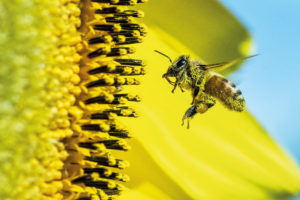Dr Emeka Explains Allergies
By
2 years ago

Meet School House’s new doctor, here to explain medical issues with calmness and compassion
As a doctor working in busy London and Kent A&E departments, I am used to seeing children being brought in with allergic reactions. They may be wheezing, developing a rash, eyes watering and nose running, even feeling sick. Or the symptoms may be far more severe – those of anaphylaxis, when the body starts to shut down: difficulty breathing or a swollen tongue, swollen throat or being unable to speak. In these cases, time is of the essence. We administer adrenaline, attach a drip for fluids and a mask for extra oxygen, all while trying to establish what the cause is – and keeping everyone calm. This is one of those situations where it is very normal to be very worried.

Dr Emeka
Thankfully, we have the medicines and the skills we need and most commonly, our young patient is back to normal in a few days.
Often though, it is the parent who takes it harder and worries for longer. Children are very good at getting back to their lives; for parents, life has changed forever and become more frightening.
Some allergies are present from birth; others develop later in life. Either way, I’m always keen to spend time reassuring parents and persuading them to learn as much as they can about their child’s situation. Nowhere do knowledge and power intersect more perfectly than in healthcare.
The first thing that it is important to know is what you are dealing with. An allergy is the body’s adverse response to an allergen by the body’s immune system. The body has identified something it thinks is dangerous and gears into action. Responses to allergens are not always life-threatening so it’s important to understand what you are dealing with and what treatment might be needed.
This is quite different to an intolerance – dairy for example, where the gut system may lack a way to process an item.
Allergies are really relatively common and about 25 percent of people in the UK will experience one at some point in their lives. Some of the more common things people are allergic to include animal fur, venom, pollen, dust, mould, latex, medication – and then there are food allergies, which covers a very broad range from nuts, eggs, and milk to some cereals, fish, shellfish and even beans.
To find out what the specific problem is, parents can organise testing for specific allergies, via a GP referral to an allergy clinic. Here investigations will range from skin prick tests, blood tests, and specific diet testing in order to find out the problem and how best the patient can be helped.
When a child has an allergy this can then be monitored via their medical records. As clinicians we will know the allergen and, very importantly, the reaction. Mild symptoms can usually be treated easily with medications such as antihistamines, steroids or steroid creams often available over the counter.

Dr Emeka shares important advice on dealing with allergies (Image: Pexels)
However, patients with known previous anaphylaxis, that life-threatening allergic reaction that happens very quickly and can be caused by food, medicine or insect stings, will need an EpiPen – a device which delivers a shot of adrenalin via injection – and this information should be passed on to schools or institutions they attend in case of emergency.
EpiPens come in different shapes and sizes depending on the brand so they don’t all look identical. And it’s important to check with your doctor and the manufacturer how long before the medication expires. Usually due to the instability of the epinephrine, which is the main ingredient, most EpiPens don’t last much longer than one year before you need a new one. They should always be stored in dark spaces at room temperature to ensure longevity and efficiency.
Schools should always be warned and all adults involved in care or teaching trained in helping the child administer the medication and call 999. Extra consideration can be given around lessons, too.
It’s easy to forget that allergies can have a big impact on children’s lives and the symptoms can hinder their learning at school especially if they are continually uncomfortable or find it embarrassing to be different.
Finding a sweet spot between making sure a child understands the gravity of an allergy and not frightening them is the most important conversation you can have. And doctors like me are more than happy to help with that.
If you have any queries about this topic or other medical issue, please contact your GP.
Dr Emeka Okorocha is a broadcaster, author and NHS Accident and Emergency doctor – and has been voted one of the world’s top 10 educators on TikTok. He is the author of Your Health In Your Hands available to order from Amazon and Waterstones.
Five Amazing Allergy Facts

Climate change can lead to a longer pollen season
- With climate change and warmer temperatures it seems pollen, from a number of sources like grasses and trees, remains in the atmosphere for longer. Changes in the climate can lead to an extended pollen season which could make life difficult for people who suffer with hay fever as their symptoms may prolong. Hay fever symptoms can range from sneezing, coughing, runny or blocked noses and watery eyes. Although urban areas have lower pollen counts in general they also have higher cases of pollution which could make hay fever symptoms worse.
- Could you be allergic to baths? Believe it or not, yes. Aquagenic Urticaria is an extremely rare condition which is characterised by exposure to water. You may develop hives on exposure to water in many forms such as liquid, ice, snow, and even sweat and tears. You may experience burning, inflammation and rashes. We usually diagnose this clinically with a water challenge test to distinguish from other diseases. There’s currently no cure however antihistamines and lotions can help with symptoms but the best method is avoidance therapy, keeping your skin cool and dry as often as possible.

Aquagenic Urticaria is an extremely rare condition which is characterised by exposure to water (Image: Pexels)
- We talk about singing in the rain but how about using the rain to escape your allergies? Studies have shown that temperature, humidity, and yes even rain can affect the atmospheric pollen count. Pollen count tends to be lower just after heavy rain and highest between 10am and 4pm on hot, dry windy days.
- When it comes to seasonal allergies, cartoons and myths have often taught us that picking flowers and having a bouquet of blossoms triggers our allergies and exacerbates hay fever. But this is actually a common myth as most of the atmospheric pollen we get comes from trees, grasses and weeds. So it’s important to look up the different types of pollen in your area and the pollen count to know when to keep yourself indoors!
- Some individuals may develop nickel allergy, which is essentially a form of contact dermatitis that can be caused by prolonged exposure to the metal, via piercings and jewelry. Unfortunately this could lead to long-term sensitivity to the metal. Symptoms are usually an itchy rash, redness, dry patches or blisters where the metal touches the skin. Certain risk factors such as having ear and body piercings, working closely with metal or having a family history or other allergies to metal can increase the chances of an allergy.







